Africa
Over 40 killed in attack on Sudanese hospital: WHO Chief condemns “Appalling” strike
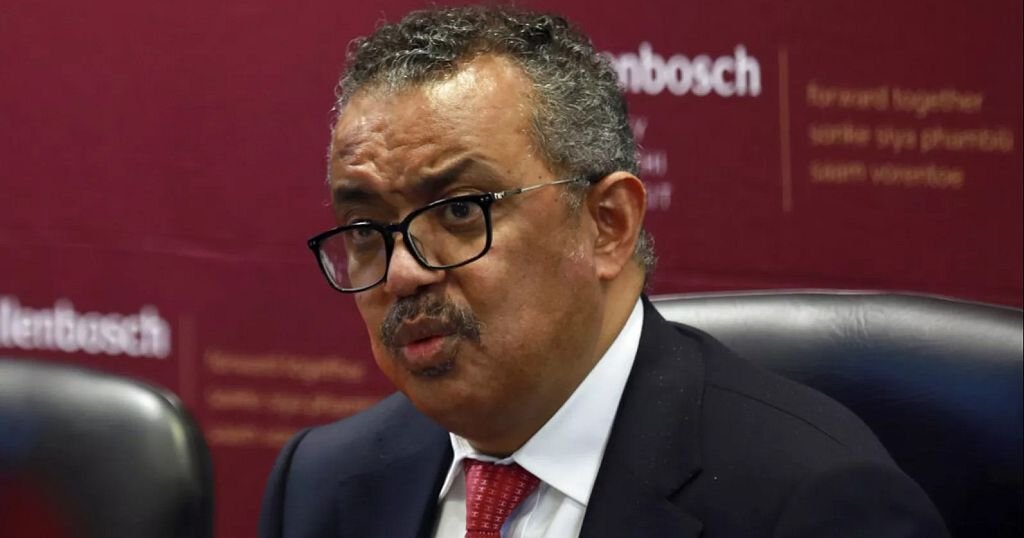
A devastating attack on Al Mujlad Hospital in Sudan’s West Kordofan state has left more than 40 people dead, including children and health workers, in one of the deadliest assaults on healthcare since the country’s civil war began in April 2023.
The World Health Organisation (WHO) chief, Dr. Tedros Adhanom Ghebreyesus, described the incident as “appalling” and renewed urgent calls for an end to violence against medical facilities.
The strike occurred Saturday near the frontlines of fierce fighting between the Sudanese Armed Forces (SAF) and the paramilitary Rapid Support Forces (RSF), whose conflict has plunged Sudan into what the United Nations calls the world’s worst humanitarian crisis.
Al Mujlad Hospital, the only functioning healthcare facility in the area, was hit with deadly force, killing at least six children and five medical staff among the more than 40 victims, according to WHO’s Sudan office.
“We cannot say this louder: attacks on health must stop everywhere! Hospitals are not a target,” Dr. Tedros posted on X, formerly Twitter.
Responsibility for the attack remains disputed. The RSF and two prominent civil society groups blame the Sudanese army, alleging the strike targeted RSF fighters stationed inside the hospital, though the army has yet to comment on the allegations.
Human rights group Emergency Lawyers accused an army drone of carrying out the strike, but reported a lower death toll in their initial statement.
The hospital, which ran a dialysis unit and primarily served civilians, now lies in ruins, further depriving the region’s population of essential medical care. The loss is particularly acute as millions across Sudan face displacement, malnutrition, and disease amid ongoing violence and collapsing health infrastructure.
The international community, led by the WHO and UNICEF, continues to warn of a worsening crisis for Sudan’s children, who are increasingly malnourished, out of school, and at risk of exploitation and disease.
Attacks on health facilities, which are protected under international law, have become tragically frequent in the conflict, with both sides accused of war crimes against civilians and medical staff.
As Sudan’s war enters its third year, the call from global health leaders is clear: the targeting of hospitals and health workers must end immediately to prevent further humanitarian catastrophe.
Africa
Iran says it’s willing to resume nuclear talks with the US if given assurances of no more attacks
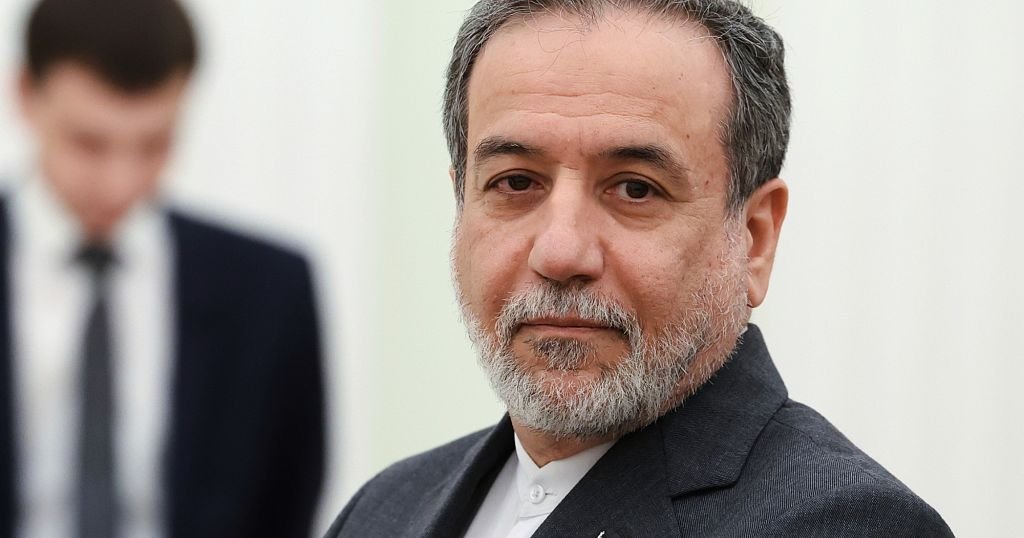
Iran’s foreign minister said Saturday that his country would accept a resumption of nuclear talks with the US if there were assurances of no more attacks against it, state media reported.
Abbas Araghchi said in a speech to Tehran-based foreign diplomats that Iran has always been ready and will be ready in the future for talks about its nuclear program, but, “assurance should be provided that in case of a resumption of talks, the trend will not lead to war.”
Referring to the 12-day Israeli bombardment of Iran’s nuclear and military sites, and the US strike on June 22, Araghchi said that if the US and others wish to resume talks with Iran, “first of all, there should be a firm guarantee that such actions will not be repeated. The attack on Iran’s nuclear facilities has made it more difficult and complicated to achieve a solution based on negotiations.”
Following the strikes, Iran suspended cooperation with the UN nuclear watchdog, which led to the departure of inspectors. Araghchi said that under Iranian law, the country will answer the agency’s request for cooperation “case by case,” based on Iran’s interests.
He also said any inspection by the agency should be done based on Iran’s “security” concerns as well as the safety of the inspectors. “Danger of proliferation of radioactive materials is high, danger of explosion of ammunition that remained from the war is a serious one.” he said.
He reiterated Iran’s position on the need to continue enriching uranium on its soil. US President Donald Trump has insisted that cannot happen.
Israel claims it acted because Tehran was within reach of a nuclear weapon. US intelligence agencies and the International Atomic Energy Agency had assessed Iran last had an organized nuclear weapons program in 2003, though Tehran had been enriching uranium up to 60% — a short, technical step away from weapons-grade levels of 90%.
Iranian President Masoud Pezeshkian in an interview published Monday said the US airstrikes so badly damaged his country’s nuclear facilities that Iranian authorities still have not been able to access them to survey the destruction.
Africa
UN warns of worsening violence and mass displacement in Haiti, in new report
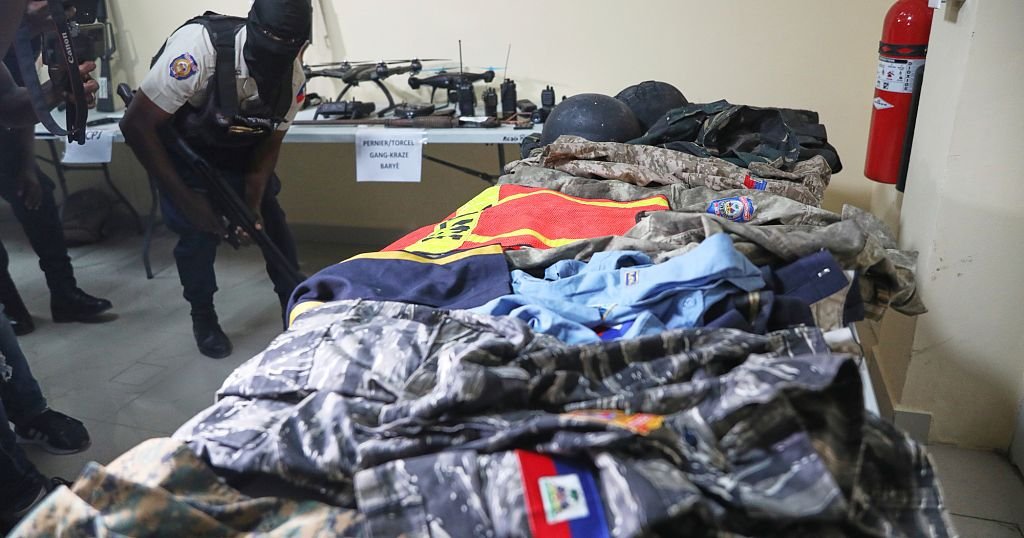
Violence in Haiti is escalating sharply, with gang activity reaching new levels across the country. According to a new report from the United Nations, the surge began in October 2024 and has continued through June of this year. While Port-au-Prince remains a hotspot, the UN highlights that the chaos is now spreading rapidly into rural regions, where state authority is almost entirely absent.
“The escalating gang violence outside Port-au-Prince, where the presence of the state is extremely limited, has claimed over 1,000 lives and forced hundreds of thousands to flee since October 2024,” said Ravina Shamdasani, spokesperson for the Office of the UN High Commissioner for Human Rights.
The report also notes a troubling rise in human rights abuses committed by so-called self-defence groups. These armed civilian groups initially emerged in response to gang violence but are now implicated in growing numbers of violations themselves. The UN is urging urgent international intervention.
“The human rights violations and abuses that we have documented are further evidence of why Haiti and the international community urgently need to step up to end this violence,” Shamdasani added.
According to the UN, a mass killing in Pont-Sondé in the Lower Artibonite region in October 2024 marked a major turning point. What followed was a wave of brutal attacks, displacements, and growing instability.
In one of the most striking examples, the town of Mirebalais in the Centre department was completely emptied. All 100,000 residents fled as violence surged earlier this year.
The UN continues to call for coordinated international action to restore security and protect civilians, warning that without intervention, Haiti’s humanitarian crisis will only deepen.
Africa
Uganda reopens border with M23-held eastern DRC
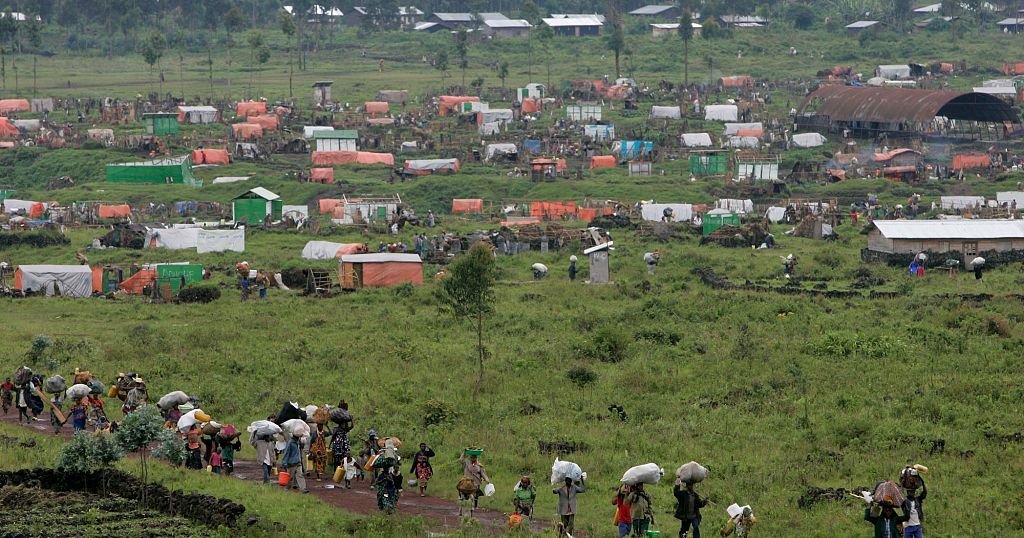
Six months after closing key border crossings due to rebel advances, Uganda has reopened its border with the Democratic Republic of Congo (DRC). The move comes after the seizure of Goma by the M23 rebel group, which led to the shutdown of crossings at Bunagana and Ishasha in Congo’s North Kivu province.
Ugandan military assistant Chris Magezi confirmed the reopening on social media, stating that it was ordered directly by President Yoweri Museveni. Magezi also noted that those responsible for initially closing the crossings and disrupting trade between the two communities will be investigated.
The decision follows the recent signing of a peace agreement in Washington, where Rwanda and the DRC agreed to support future talks between the M23 rebels and the Congolese army.
The M23 rebel group, largely made up of ethnic Tutsis, resumed its offensive in late 2021. Fighting intensified significantly this year, with the group capturing large areas of eastern Congo, including the strategic city of Goma.
The Congolese government has repeatedly accused Rwanda of supporting M23 with weapons and troops. These claims have been backed by the United States, which has cited credible intelligence reports. Rwanda has denied any direct involvement with the rebel group.
With the border reopened and international diplomacy underway, regional dynamics are shifting. The success of upcoming peace talks will depend heavily on continued pressure from international stakeholders and a willingness among parties to compromise.
-

 Asia5 days ago
Asia5 days agoA torpedoed US Navy ship escaped the Pacific in reverse, using coconut logs. Its sunken bow has just been found
-
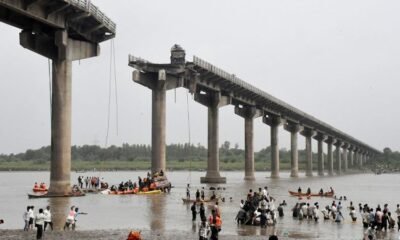
 Asia4 days ago
Asia4 days agoGujarat state: Bridge collapse kills 9 in India
-

 Europe4 days ago
Europe4 days agoTrump promised 200 deals by now. He’s gotten 3, and 1 more is getting very close
-
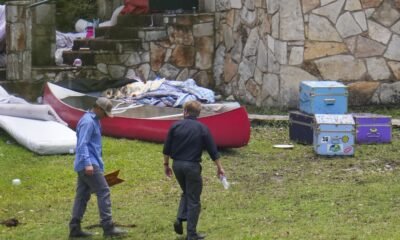
 Lifestyle5 days ago
Lifestyle5 days agoFaith-based camps like those hit by Texas floods are rite of passage for many
-
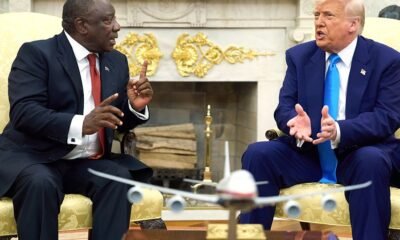
 Africa5 days ago
Africa5 days ago30% on South African imports: Ramaphosa hits back at new Trump tariffs
-

 Europe4 days ago
Europe4 days agoExtreme heat is a killer. A recent heat wave shows how much more deadly its becoming as humans warm the world
-
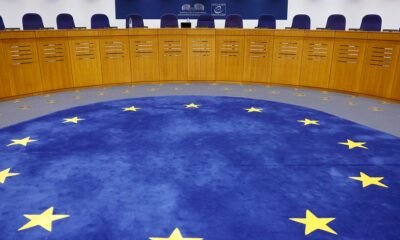
 Africa4 days ago
Africa4 days agoTop European court delivers series of damning rulings against Russia
-
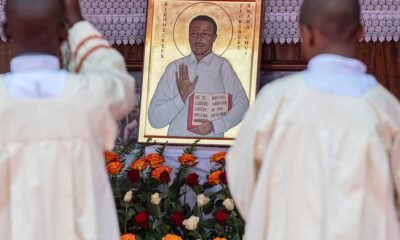
 Africa5 days ago
Africa5 days agoCatholics in eastern Congo honor beatified anti-corruption martyr




